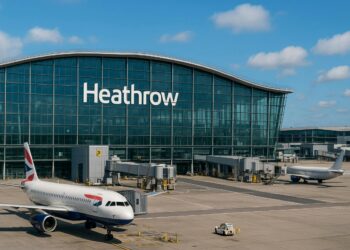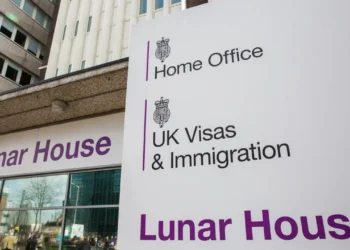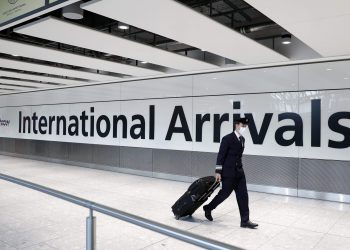Foreign trained lawyers who want to practice law in the United Kingdom now have a very clear path to achieve this dream. In addition, there is also a straight path for foreign lawyers to settle in the UK with their family members through a very popular immigration route, which the UK Home Office recently reintroduced and made much easier for immigrants.
Please note that our reference to practicing law in the UK going forward would mean within the jurisdiction of England and Wales in the UK. Also, we will be focusing on Solicitors practice in particular.
This is exactly what we have set out to discuss in detail in this report in the next few minutes. Essentially, we will show you how to qualify to practice law in the UK and also relocate to settle in UK with your family. Our discussion will be covering the following scope:
- What you must do right now before you start the process
- How to qualify and join the UK bar
- How to join the UK bar without sitting for the qualifying exam
- How to settle in UK after qualifying to practice law
WHAT YOU MUST DO RIGHT NOW BEFORE YOU START THE PROCESS
This information has become relevant because of the experience that some candidates and applicants have had to encounter in the middle of passing through this process of beginning a legal career in the United Kingdom, after qualifying in a foreign jurisdiction.
UK is a highly regulated society almost where every occupation is considered a profession with its own professional ethics. The legal profession is no less so. It is in fact at the pinnacle of the ladder. The profession is globally considered as an honourable one and rightly so.
Locally in the United Kingdom, the legal profession is highly regulated, and the professional ethics expected of members of the profession has a very high bar. Only men & women adjudged as “fit and proper” are accepted to practice law within all the jurisdictions in the UK.
Lawyers who are coming to practice in the country are therefore expected to have practiced the legal profession in their home country under same very high standard that is expected in the UK.
Consequently, such candidate will before final assessment and admission to practice in the UK be expected to produce evidence of professional credibility in their home country. This requirement is usually satisfied through the “certificates of good standing” from the local bar association of the foreign lawyer.
Therefore, your very first step, which must be taken as soon as immediately is to straighten things up with your local bar. Start paying your bar practising fees if you have not been doing so. Ensure you are regularly up to date with all dues and membership requirements. This is simply because this certificate of good standing comes from your local association.
HOW TO QUALIFY AND JOIN THE UK BAR
Like we indicated at the beginning, our discussions are focusing on solicitors and not barristers, and in the jurisdiction of England and Wales. However, most of our discussions will also apply to the situation in other UK jurisdictions and as it concerns barristers too.
Practicing law in the UK is now relatively straightforward, a lot easier and cheaper than before for foreign trained lawyers. This path was revolutionised since September 2021, with the introduction of the Solicitors Qualifying Examination (SQE), as the only requirement to be met by lawyers from foreign jurisdictions to practice in the United Kingdom.
The Solicitors Qualifying Examination (SQE) has replaced the previous Qualified Lawyers Transfer Scheme (QLTS), which was considered more difficult and expensive.
The SQE is in two parts, known as SQE1 and SQE2. The first consists of two exams in multiple-choice question format, while the second part consists of a series of practical assessments of skills through written and oral examinations. There is a third part known as Qualifying Work Experience (QWE), but foreign trained lawyers are exempted from meeting this QWE requirement locally in the UK.
Another flexibility of the UK qualification requirement is that the first part, which is the SQE1 can be taken right from your home country if there is a test centre in your country. You do not have to travel to the UK to begin this journey. If successful, you can then sit for the SQE2, which is also currently been arranged to be taken at test centres around the world. But you can also travel to the UK to sit for the exam if you wish to do so.
In summary, to requalify to practice in the UK (England and Wales), foreign lawyers need to:
- Show proof they are qualified to practice in their home country
- Show proof of at least 2 years work experience, if applying for exemption
- complete two stages of assessment, SQE1 and SQE2, unless exempted
- satisfy the SRA’s character and suitability requirements
Fully qualified foreign lawyers are exempt for any qualifying work experience (QWE) requirements. The requirement is so flexible that your work experience in your home country is sufficient. However, in the event of seeking for exception from the SQE, you will be required to provide information about your existing work experience of at least 2 years, with supporting documents to back it up. We shall discuss this next.
HOW TO JOIN THE UK BAR WITHOUT SITTING FOR THE QUALIFYING EXAM
The Solicitors Regulation Authority (SRA), which is the regulatory body in England & Wales provides that foreign lawyers “can apply for exemption from the SQE on the basis of prior qualifications or experience.”
Recall that the SQE is divided into SQE1&2, while the SQE1 alone is further divided into two as follows:
- SQE1 Functioning Legal Knowledge 1
- SQE1 Functioning Legal Knowledge 2
- SQE2
The SRA allows foreign bars and law societies to apply for SQE exemptions for their members by contacting the SRA education and training unit directly through their official email at [email protected].
You can also submit application for exemptions individually as a foreign lawyer if your bar association has not done so already. Even where they have already done so, but failed or only got some exceptions, but not all, you can submit your own application personally seeking to be exempted from writing the SQE or some part of the SQE qualifying exams. This is notwithstanding the corporate arrangement already made by your bar association.
However, before you apply on individual bases, it is important to first find out if your bar association has already obtained any exception agreement with the SRA. You can get this information from your local bar branch or your national headquarters. You can also search the SRA website for information. From our research, most African countries do not have group exception for their bar members.
So, lawyers from countries such as Nigeria, Kenya, Rwanda, South Africa, etc. will need to submit individual application for exemption. According to the SRA website (https://www.sra.org.uk/become-solicitor/qualified-lawyers/sqe-exemptions/), “legal qualifications from these countries have been looked at and do not meet all our requirements for an agreed exemption.”
However, it further provides that you can apply for an individual SQE2 exemption. This is so long as you have at least two-years’ legal work experience gained either as part of your qualification or after it (or a combination of these). You can apply for a new exemption or to benefit from an agreed exemption using the online form at mySRA. (You’ll need a mySRA account to access the form.)
If exempted, you will not need to sit the corresponding SQE assessment(s) (see regulation 3.2 of the Authorisation of Individuals Regulations). Note however, that if you’re granted an exemption from SQE2, you may need to prove your English or Welsh language competence. The English part should be easy for any lawyer.
COST IMPLICATION
The total cost of the SQE assessments is £3,980, which breaks down as:
- SQE1 – £1,558
- SQE2 – £2,422
While the application fee for exception from writing any of the SQE qualifying exams is £265.
All the above costs put together is way less than the cost of following the student visa route. So, going for LLM just to relocate to the United Kingdom is share waste of resources, acquiring a degree you do not and will never need in the country or anywhere else. Average cost of LLM in the UK currently is about £15,000 pounds. This is more than enough to settle down with your family in the UK.
HOW TO SETTLE IN UK AFTER QUALIFYING TO PRACTICE LAW
Qualifying to practice law alone does not give you automatic entry and settlement right in the United Kingdom. Rather, it provides you with a ticket to achieve that. The opportunity it provides is also a straight and guaranteed path to settling in the UK with your entire family (of husband, wife and children).
The route to achieving this is through the Graduate Visa route, which gives you automatic 2-year post qualification visa with work permit. During this period, you are allowed to join any law firm of your choice that accepts you. You can also open your own law firm after meeting the conditions and requirements.
Before now, most people have mistakenly thought that the Graduate Visa route is only for graduates with Student Visa. This could be because of the beginning paragraph of the website which provides that “To be eligible for a Graduate visa, you need to have successfully completed the course you took with your current Student visa or Tier 4 (General) student visa.”
However, this is not exactly the case, as the Home Office also says that you can apply for the Graduate Visa if you have “completed any of the following:
- a law conversion course approved by the Solicitors Regulation Authority
- the Legal Practice Course in England and Wales, the Solicitors Course in Northern Ireland, or a Diploma in Professional Legal Practice in Scotland
- the Bar Practice Course in England and Wales, or the Bar Course in Northern Ireland
- a foundation programme in medicine or dentistry
- a Postgraduate Certificate in Education (PGCE)
- a Postgraduate Diploma in Education (PGDE)”
Finally, with a Graduate Visa you can bring your family to the UK immediately if you wish. You can also switch to the Skilled Worker Visa, which automatically extends your stay beyond 2 years, while giving you the 5year path to settlement with your family. For more details about the Skilled Worker route please click here.
We know you may have questions, comments or recommendations following this report. Kindly drop them in the comment section below. We promise to respond adequately.
https://www.youtube.com/watch?v=i_xKa6PhT_0












